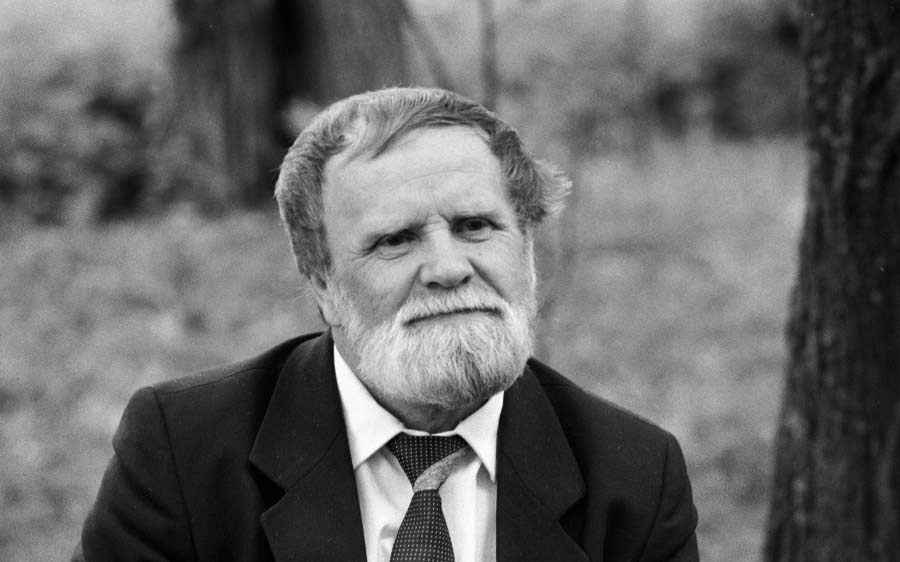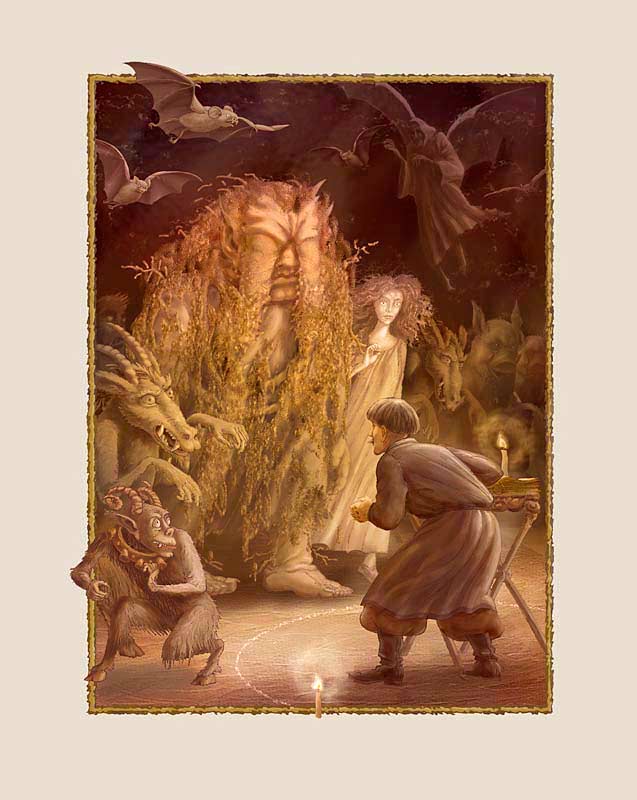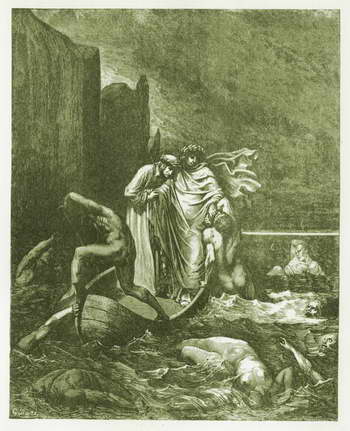English theater of the era of Shakespeare
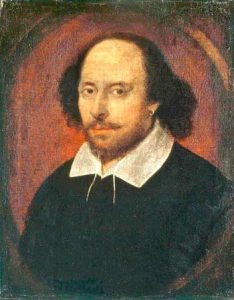 Along with the development of dramatic poetry in England, the stage production of plays was also improved. The great importance of Shakespeare’s dramas arouses interest in the design of the theater in his time. The knowledge of the stage situation is necessary for understanding the drama of Shakespeare, as the dramas of Sophocles and Euripides become clear only with the knowledge of the structure of the Greek theater. The English drama, like the Greek, is derived from religious plays. The Catholic Church allowed a comic element in the mysteries and morals; Reformation did not tolerate it. England adopted Calvinism in a gentle form given to him by the government. Continue reading
Along with the development of dramatic poetry in England, the stage production of plays was also improved. The great importance of Shakespeare’s dramas arouses interest in the design of the theater in his time. The knowledge of the stage situation is necessary for understanding the drama of Shakespeare, as the dramas of Sophocles and Euripides become clear only with the knowledge of the structure of the Greek theater. The English drama, like the Greek, is derived from religious plays. The Catholic Church allowed a comic element in the mysteries and morals; Reformation did not tolerate it. England adopted Calvinism in a gentle form given to him by the government. Continue reading
Two crosses of Konstantin Batiushkov
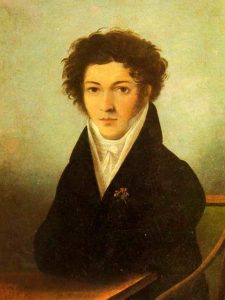 This year marks the 230th anniversary of the birth of Konstantin Nikolaevich Batyushkov (1787–1855) and the 200th anniversary of the release of his only book, the two-volume book Experiments in Verse and Prose (1817). An outstanding personality – bright, heroic and tragic – the Russian poet Konstantin Batiushkov occupied a special place in the history of Russian literature. Pushkin considered him one of his teachers in poetry, recognized the works of Batiushkov as a poetic miracle and in this sense called him a “wonderworker”. Continue reading
This year marks the 230th anniversary of the birth of Konstantin Nikolaevich Batyushkov (1787–1855) and the 200th anniversary of the release of his only book, the two-volume book Experiments in Verse and Prose (1817). An outstanding personality – bright, heroic and tragic – the Russian poet Konstantin Batiushkov occupied a special place in the history of Russian literature. Pushkin considered him one of his teachers in poetry, recognized the works of Batiushkov as a poetic miracle and in this sense called him a “wonderworker”. Continue reading
Akaky Akakievich Bashmachkin in the story “The Overcoat”
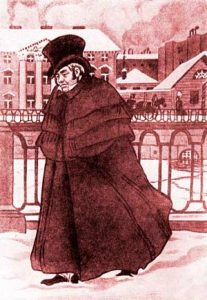 The Gogol story “The Overcoat” (see its full text, summary and analysis) depicts a petty, downtrodden and pathetic official Akaky Akakiyevich Bashmachkin (see his description in the text of the work). He is so humiliated, so intimidated, so offended by fate that, apart from the mechanical rewriting of papers, he does not know how to do anything. He says more pronouns and interjections, is afraid of mocking co-workers and trembles in front of the authorities. Continue reading
The Gogol story “The Overcoat” (see its full text, summary and analysis) depicts a petty, downtrodden and pathetic official Akaky Akakiyevich Bashmachkin (see his description in the text of the work). He is so humiliated, so intimidated, so offended by fate that, apart from the mechanical rewriting of papers, he does not know how to do anything. He says more pronouns and interjections, is afraid of mocking co-workers and trembles in front of the authorities. Continue reading
“Drone”, Novikov magazine
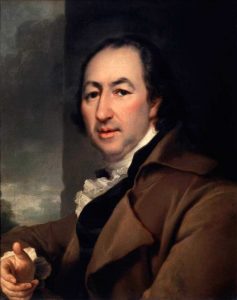 Of the Russian prints of the beginning of the reign of Catherine II, the most serious was Novikov’s journal “The Drone”, which was published in the capital from May 1769 to April 1770. In this organ Novikov began to flaunt the vices of modern society, exposing them to the living faces of contemporaries, probably well-known and because it is easy for everyone to recognize.
Of the Russian prints of the beginning of the reign of Catherine II, the most serious was Novikov’s journal “The Drone”, which was published in the capital from May 1769 to April 1770. In this organ Novikov began to flaunt the vices of modern society, exposing them to the living faces of contemporaries, probably well-known and because it is easy for everyone to recognize.
Catherine resolutely rebelled against this — her satire in “All things” was “in a smiling way” and did not allow certain individuals to be convicted — she did not invade the state, even public life, and was of a general nature, as a result of which she was distinguished by vagueness. Continue reading
“Taras Bulba” Gogol
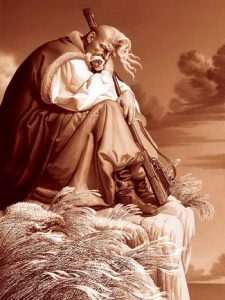 The story of Gogol’s creation of the Taras Bulba story, the history of influences on the author of literary works by his predecessors, is very complex and has not yet been fully elucidated. First of all, interest in the past of Little Russia, and especially in the Cossacks, as the most vivid manifestation of its history, was strong in Gogol from his youth. He dreamed about creating a historical tragedy from the life of old Ukraine, then about the history of Little Russia, “in six small, or in four large volumes”. Continue reading
The story of Gogol’s creation of the Taras Bulba story, the history of influences on the author of literary works by his predecessors, is very complex and has not yet been fully elucidated. First of all, interest in the past of Little Russia, and especially in the Cossacks, as the most vivid manifestation of its history, was strong in Gogol from his youth. He dreamed about creating a historical tragedy from the life of old Ukraine, then about the history of Little Russia, “in six small, or in four large volumes”. Continue reading
